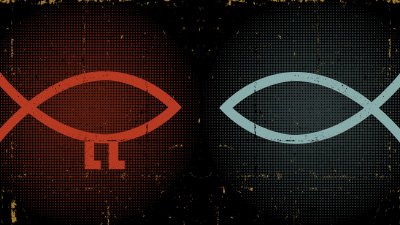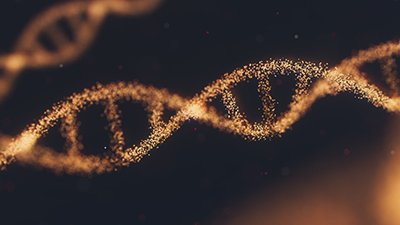
“Doubting Evolution Is like Doubting Gravity.”
Argument 4
Why does this argument fail? We’ll show you. Take a pencil or pen. Hold it in the air. Then drop it (and observe it as it falls) to the floor. That’s gravity. Next, make a single-celled organism—like an amoeba—turn into a goat. Too difficult? OK, let’s make it easy. Just turn the amoeba into a paramecium, another type of single-celled creature. Go ahead. We’ll wait. . . . No? As you can see, there’s a fundamental difference between operational science, which can be tested through repeatable experimentation, and historical science, which cannot.1
This argument assumes that molecules-to-man evolution, which belongs in the realm of historical science, can be compared to the law of gravity, which was proven using operational science. Operational science involves the scientific method—observing the data, proposing a hypothesis, performing experiments, and drawing conclusions. Historical science involves interpreting past events through a preconceived worldview. That’s why evolutionists and creationists, interpreting the same evidence through their opposing worldviews, can come to starkly different conclusions.
The irony of the argument—“doubting evolution is like doubting gravity”—is that the scientist who proposed the theory of universal gravitation, Sir Isaac Newton, was a young-Earth creationist. Newton believed the Bible’s account of creation in six days. A brilliant mathematician who is credited with developing calculus, Newton studied and agreed with Archbishop Ussher's calculations that the earth is only around 6,000 years old. Because Newton believed the Genesis account that God created the heavens and the earth, he assumed orderly physical laws, such as gravity and the three laws of motion, would rule them both.
These constants of nature do not make sense in a world that began by chance without the Designer. If we live in a random, chance universe consisting of only matter in motion, how can we account for the mathematical laws of nature that govern everything from a massive star to a tiny electron? Only the biblical worldview can support the uniformity of nature, without which the practice of science would be impossible. The fundamental laws of nature operate consistently through time and space because the omnipotent, immutable Creator ordained them and is upholding the cosmos by His power (Genesis 8:22; Jeremiah 33:25; Colossians 1:15–17; Hebrews 1:3).
No wonder the Bible calls an atheist a fool (Psalm 14:1). Conversely, “The fear of the Lord is the beginning of knowledge” (Proverbs 1:7). In order to have an accurate framework for understanding God’s world, we must start with God’s Word, beginning with His revelation of Genesis.
Il n'est donc pas étonnant que la Bible qualifie l'athée de fool (Psaume 14:1). Inversement, "la crainte de l'Éternel est le commencement de la connaissance" (Proverbes 1:7). Afin de disposer d'un cadre précis pour comprendre le monde de Dieu, nous devons commencer par la Parole de Dieu, en commençant par sa révélation de la Genèse.
Further Reading
Footnotes
- "12 Arguments Evolutionists Should Avoid", Answers in Genesis, Science.

Answers in Genesis is an apologetics ministry, dedicated to helping Christians defend their faith and proclaim the good news of Jesus Christ.
- Customer Service 800.778.3390
- Available Monday–Friday | 9 AM–5 PM ET
- © 2026 Answers in Genesis



